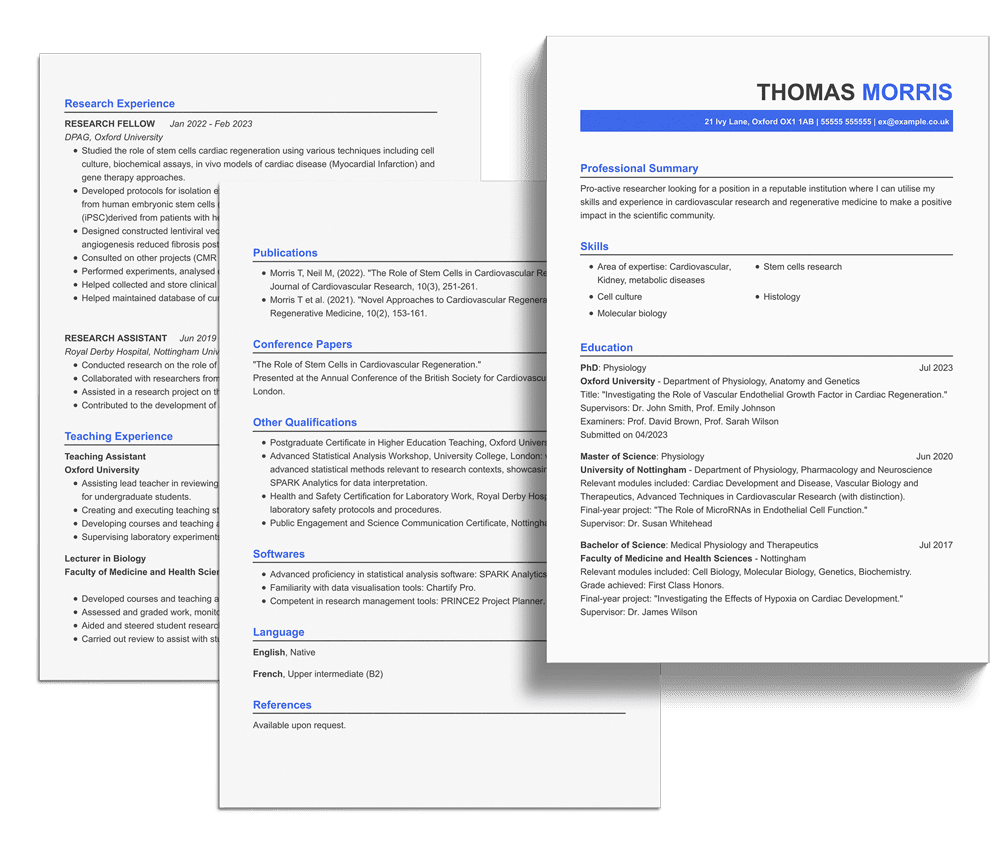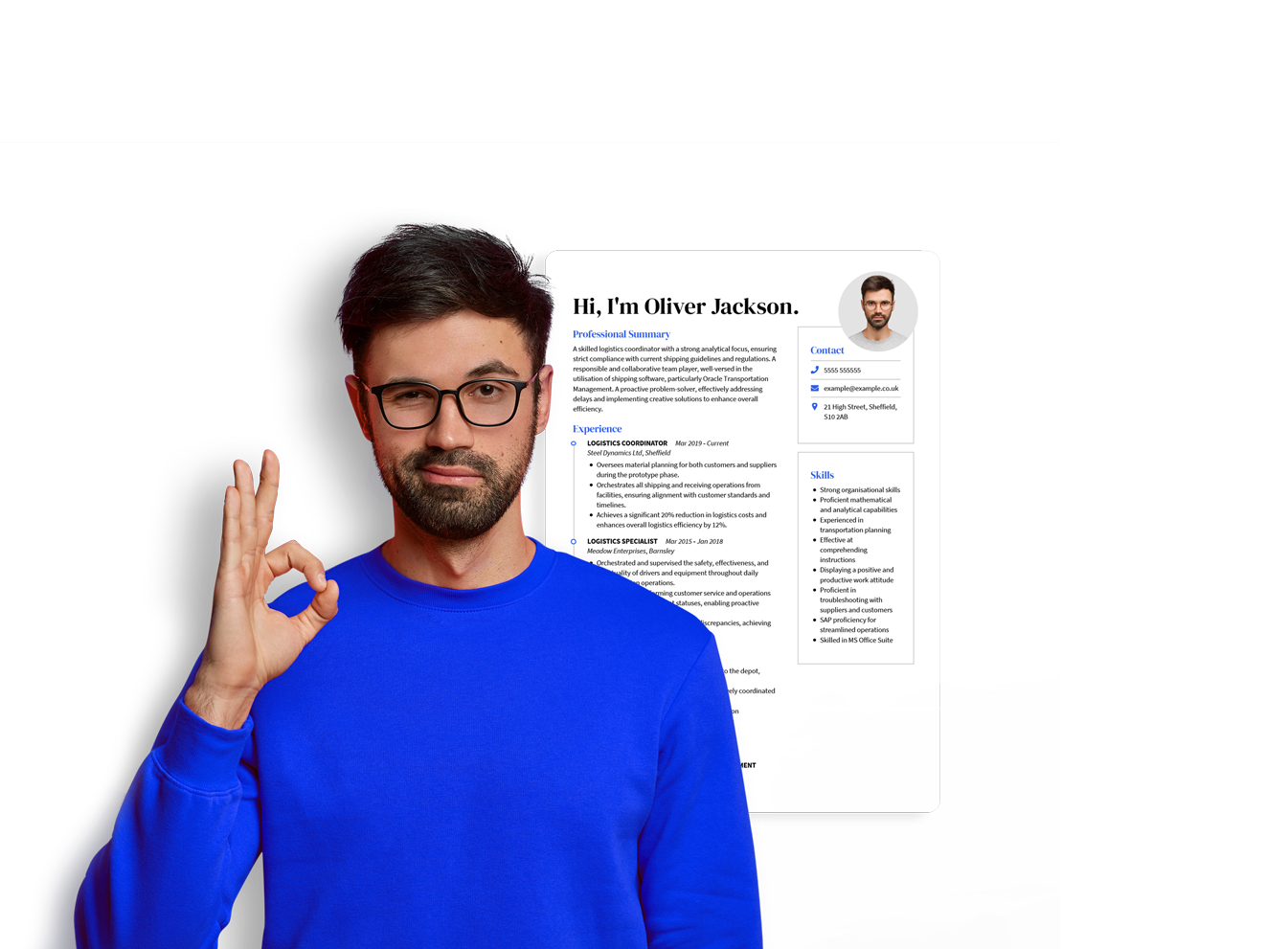The optimal length of a CV can vary depending on the individual’s professional profile and job title targeted.
Ideal CV length for most people
For the majority of job seekers, a two-page CV is commonly accepted as the perfect length. This allows to clearly outline your skills, employment history, qualifications, and relevant achievements without overwhelming the reader with an overly long CV.
However, it’s crucial that every word on these two pages adds value and directly contributes to portraying you as an ideal candidate for the job.
Remember, the goal of your curriculum vitae is to capture the employer’s interest and secure an interview, not to provide a comprehensive autobiography.
Below is an example of a succinct, yet comprehensive CV example that effectively showcases the candidate’s skills and experiences, without overwhelming the reader.

Ideal CV length for people with little or no experience
For individuals who are starting their careers or have minimal work experience, a one-page CV is typically the most suitable. Keeping your CV on a single page isn’t a reflection of lesser value but is rather an appropriate way to present your qualifications, skills, and potential to prospective employers.
This length of CV forces you to focus on the quality of content over volume, emphasising transferrable skills, academic achievements, internships, and other relevant information. Remember, it’s not about the quantity of experiences you have, but the relevance and quality of what you can offer.
Don’t be tempted to fill space; instead, aim to provide on one page a clear, concise, and targeted view of your capabilities.
Below is an example of an exemplary one-page CV for an individual with minimal work experience.


Ideal CV length for academics
For academics, researchers, and Ph.D. graduates, the CV length can significantly deviate from the standard two-page format.
Given the nature of their work, which often includes numerous publications, presentations, teaching experiences, and research projects, a longer CV is typically expected. How long should a CV be in that case? It can often extend up to a three-page CV, and in some instances four pages or more, depending on the depth and breadth of the academic’s professional portfolio.
However, it is still crucial to ensure that all information is relevant, well-organised, and communicates your academic history and contributions. Tailor it to the specific position you are applying for, highlighting the most pertinent information.
Here is an example showcasing an academic’s professional portfolio.





